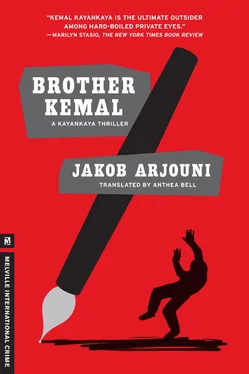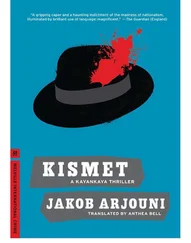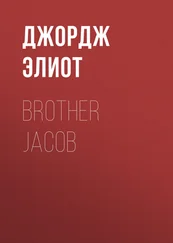Jakob Arjouni - Brother Kemal
Здесь есть возможность читать онлайн «Jakob Arjouni - Brother Kemal» весь текст электронной книги совершенно бесплатно (целиком полную версию без сокращений). В некоторых случаях можно слушать аудио, скачать через торрент в формате fb2 и присутствует краткое содержание. Жанр: Криминальный детектив, на английском языке. Описание произведения, (предисловие) а так же отзывы посетителей доступны на портале библиотеки ЛибКат.
- Название:Brother Kemal
- Автор:
- Жанр:
- Год:неизвестен
- ISBN:нет данных
- Рейтинг книги:5 / 5. Голосов: 1
-
Избранное:Добавить в избранное
- Отзывы:
-
Ваша оценка:
- 100
- 1
- 2
- 3
- 4
- 5
Brother Kemal: краткое содержание, описание и аннотация
Предлагаем к чтению аннотацию, описание, краткое содержание или предисловие (зависит от того, что написал сам автор книги «Brother Kemal»). Если вы не нашли необходимую информацию о книге — напишите в комментариях, мы постараемся отыскать её.
Brother Kemal — читать онлайн бесплатно полную книгу (весь текст) целиком
Ниже представлен текст книги, разбитый по страницам. Система сохранения места последней прочитанной страницы, позволяет с удобством читать онлайн бесплатно книгу «Brother Kemal», без необходимости каждый раз заново искать на чём Вы остановились. Поставьте закладку, и сможете в любой момент перейти на страницу, на которой закончили чтение.
Интервал:
Закладка:
Jakob Arjouni
Brother Kemal
Chapter 1
Marieke was sixteen and, in her mother’s words, ‘very talented, well-read, politically committed, with an inquiring mind and a good sense of humour — simply a wonderful, intelligent young woman, do you understand? Not the sort to hang around idly, not addicted to computers or into nothing but shopping and complaining that life’s so boring. On the contrary: class representative, a member of Greenpeace, paints wonderfully well, interested in modern art, plays tennis and piano — or did play tennis and piano anyway …’
Her mother looked briefly at the floor and tucked a strand of blonde hair back from her forehead with her red-polished fingernails.
‘Well, that’s the way things go, don’t they? Right? Two years ago she suddenly developed new interests. I suppose you would say Marieke was what you’d call an early developer. She had her first boyfriend when she was fourteen. Jack or Jeff or something like that, an American, son of a diplomat, in the class above hers. Then at some point it was another boy, and so on. Marieke became something of a live wire, if you know what I mean.’
I knew what she meant. However, not from the photos of Marieke that I had in my hand. They showed a slightly dark-skinned girl with blonde Rasta braids looking sternly through black-framed designer glasses, with a forced and slightly condescending smile. Pretty, possibly charming, maybe cute if she took off those glasses and looked friendly, but certainly not what you’d call a live wire. More of a short circuit. Leader of a school strike, or singer in a protest band singing songs about animal rights.
What her mother meant applied to herself. She was what you’d call a live wire. At second glance. At first glance she was simply one of those athletic solarium blondes with a body that seemed cast out of hard, light brown rubbery plastic: a small pointed nose, full lips slightly too full to be natural, and eyebrows plucked to semicircles as thin as a thread to make her eyes look larger. The eyes were rather narrow, even the plucked eyebrows didn’t help that, and anyway it wasn’t the size of her eyes that mattered. What made Valerie de Chavannes such a live wire was the blue steel in her eyes, promising all kinds of delights, which she turned on you as outrageously as if she were whispering in your ear: I only ever think of one thing . Of course — or at least, most very probably — she didn’t have that one thing on her mind that morning; after all, what she wanted was to hire me to find her missing daughter. But at some stage in her life this way of looking at men must have become a habit for her.
When she had opened the door of the villa to me half an hour earlier without introducing herself, I had been more or less sure that she was a visitor: a younger sister who had gone to the dogs, or a pushy tennis-club acquaintance who had just burst in unannounced to deliver the latest changing-room gossip. Along with her I-only-ever-think-of-one-thing look, Valerie de Chavannes wore long, wide-legged, white and very translucent silk trousers that revealed slender legs and a pair of white panties, silver sandals with cork wedges about twenty centimetres high and a yellow T-shirt that was remarkably short and close-fitting for a high-society Frankfurt lady and did nothing to conceal her small, firm breasts, leaving so much skin on view right down to the waistband of her trousers that I could see the middle part of a snake tattoo. This was not what I would have expected of a woman called Valerie de Chavannes, daughter of a French banker, married to the internationally successful Dutch painter Edgar Hasselbaink, living in a five-hundred-square-metre villa with a garden and an underground garage in the middle of the diplomatic quarter of Frankfurt.
We were now sitting opposite each other in the sunny living room that occupied nearly all of the ground floor, with white carpeting, modern art on the walls and valuable furniture, with chairs made of leather, chrome and fake fur, sipping green tea from porcelain cups brought to us by a housekeeper of about fifty with a Polish accent. The question urgently occupying my mind was: Did the snake wind its way from her groin up to her navel, or vice versa? And what did it mean, one way or the other?
Instead I asked, ‘When exactly did Marieke go missing?’
‘At midday on Monday. She was at school in the morning, for a math lesson, and after that she told her best friend she was going into town to buy a pair of trousers and she’d be back in time for the sports lesson.’
Valerie de Chavannes crossed her legs, and a slender knee pressed through the silk. The platform shoe drew small circles in the air.
‘Do you want to tell me the best friend’s name?’
‘I’d rather … I did say …’
‘I know, no fuss, no police, keep it discreet, but I do need some indication who your daughter’s hanging out with. Or I’ll have to start knocking on the doors of every apartment in Frankfurt, working my way slowly up to Bad Homburg, then through Kassel, Hannover, Berlin, after that maybe Warsaw or Prague — all of them cities for young people eager for new experiences. Okay, not Kassel, obviously.’
She looked at me without a trace of humour in her eyes. The platform shoe had stopped in midair for a moment, and now the circles it drew were larger and faster.
As if speaking to a servant who was slow on the uptake, she explained, ‘If everything is all right, and Marieke simply wants to gad about for a couple of days, she’d never forgive me for sending a detective after her. She’d say I was trying to spy on her and interfere with her life. Our relationship isn’t entirely easy at the moment. I think that’s normal between a mother and a daughter of her age.’
For a Frenchwoman, Valerie de Chavannes spoke German with hardly a trace of an accent. Only now and then did she emphasise the vowels at the end of a word a little too much: mothaire, daughtaire .
‘Right, then how do you think I ought to begin searching? In the trouser shop?’
Once again the shoe stopped briefly in midair, and Valerie de Chavannes looked at me with barely concealed dislike. All the same, there was still a little of that I-only-ever-think-of-one-thing look left. As if she were turned on by an unshaven, slightly overweight private detective with a Turkish name and an office address in the notorious Gutleutstrasse area who cracked tired old jokes.
Of course it was the other way around: she turned me on, and what I called her I-only-ever-think-of-one-thing look was presumably more an I-can’t-believe-I’m-letting-such-a-Turkish-asshole-sit-here-in-my-elegant-armchair-from-the-Art-Cologne-Fair expression. For some reason she seemed to think she was dependent on me.
‘Well … I told you on the phone that Marieke has recently been in touch with an older man — that’s to say, older than Marieke, around thirty. He’s a photographer, or so he claimed anyway. He said he wanted to take fashion photos of her — the usual chat-up line. His studio or office, or maybe just his apartment, is somewhere in Sachsenhausen. She mentioned Brückenstrasse and Schifferstrasse a couple of times. There’s a little tree-lined square. At supper, Marieke talked about a corner café there …’
She cast me an inquiring glance. Did I know the café? The square? Sachsenhausen? Or was Gutleutstrasse all I knew of Frankfurt? Was I exactly what she’d been afraid of finding when she turned to the Internet in search of a private detective: a drunken, crude man from a sketchy neighbourhood who had failed at all the professions he’d tried before? Trouble with your ex-wife? Ex-husband? An overdue bill for drugs? Poorly treated by the pizza delivery guy? Kemal Kayankaya, private investigator and personal protection, your man in the outer city centre of Frankfurt!
Читать дальшеИнтервал:
Закладка:
Похожие книги на «Brother Kemal»
Представляем Вашему вниманию похожие книги на «Brother Kemal» списком для выбора. Мы отобрали схожую по названию и смыслу литературу в надежде предоставить читателям больше вариантов отыскать новые, интересные, ещё непрочитанные произведения.
Обсуждение, отзывы о книге «Brother Kemal» и просто собственные мнения читателей. Оставьте ваши комментарии, напишите, что Вы думаете о произведении, его смысле или главных героях. Укажите что конкретно понравилось, а что нет, и почему Вы так считаете.












